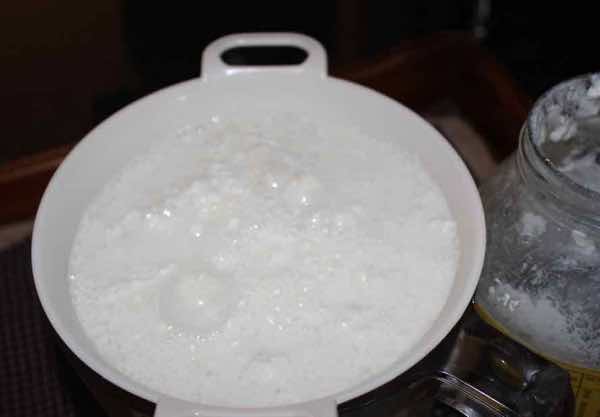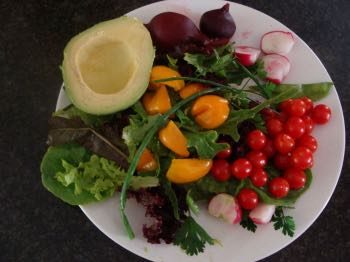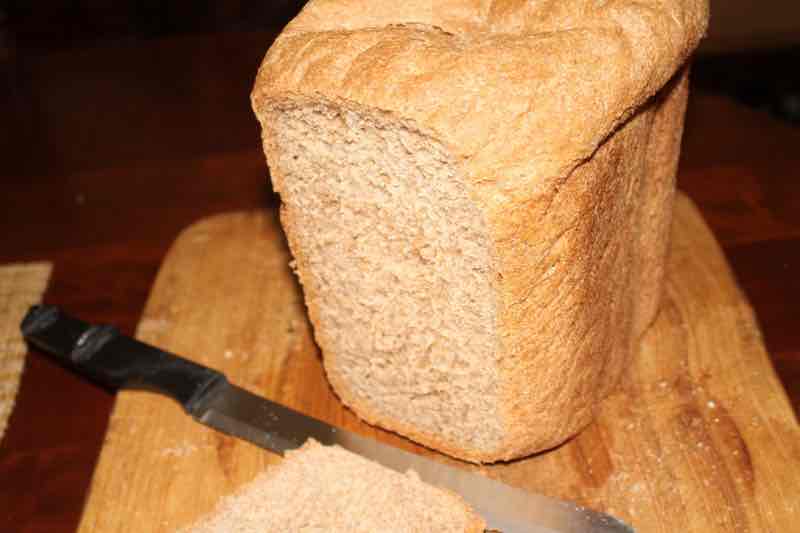- Bernard Preston homepage
- Our green home
- Is Flossing Good for Your Teeth
Is flossing good for your teeth?
Is flossing good for your teeth and is it true that it may help your brain too?
I start this short essay with an anecdote that has little scientific value but does give us some indication of the importance of flossing our teeth. And then the powerful research proving how astonishingly it decreases the prevalence of certain types of ischemic stroke by nearly 50%; utterly mind-blowing.
Quick guide
A personal anecdote about flossing
I have a lot of money invested in my teeth; crowns and fillings abound but none have been extracted it is true. Never a year goes by when there isn't a crisis.
Five years ago for a forgotten reason, probably something I read, I asked my dentist how often he flossed his teeth. I was astonished when he replied "after every meal." Up to that point I pulled out the thread and set to work perhaps once a month; or when I could feel my gum beginning to swell and getting grumpy from a remnant stuck between the molars.
So I started flossing, not after every meal but certainly at least once a day. It was quite awkward and difficult at first, as with most new activities. I quite quickly discovered that some threads were more friendly than others, a few broke after a couple uses and the price varied enormously.
I also quickly discovered that there were large gaps between certain teeth, especially the upper rear molars where they had receded into the space where there were once wisdoms.
I have now settled into a routine where daily I will floss out those large gaps which takes probably just a minute or two; and every few days I will go right through my whole mouth which obviously takes a little longer.
Is flossing good for your teeth?
Astonishingly in five years I have not had one new cavity. One filling did crumble and had to be replaced. But there were no root canals or crowns but an annual "deep cleanse" as my dentist calls it; drilling out the tartar that had formed. It's just calcified plaque that we simply cannot remove ourselves.
So by spending about fifteen minutes a week flossing my teeth I had saved myself a huge amount of money, pain and several hours squirming in the dentist's chair.
What I didn't realise until recently was that I was also protecting my brain[2]; and I mean that literally.
Cardiovascular stroke and flossing
This truly is mind-blowing. Food particles caught between the teeth cause gingivitis and periodontal disease; the bacteria first provoke local inflammation, then swelling and pain of the gums.
Researchers have now established that this gingivitis if neglected cause systemic, body-wide inflammation which can lead to atrial fibrillation and a "cardioembolic" stroke. In the US one in six deaths is caused by a CVA; a cerebrovascular accident. It's catastrophic also resulting in a great many maimed and distraught people.
Except that they are no "accident;" doctors know what causes the majority of CVAs and we can do an awful lot to prevent them. The mind-blowing part is that simply by flossing your teeth just once a week will reduce the incidence of cardiovascular stroke by 44%; just imagine the protection if you did it every day.
French researchers evaluated 11 meta-analyses, probably the most powerful tool to assess such subjects as flossing of teeth and its association with stroke. They concluded that there was an "odds ratio" of 2.32; the risk more than doubled.
26 million people have a stroke every year. Don't be one of them; floss your teeth regularly.
Atrial fibrillation
An irregular, fast heartbeat affects 33 million people worldwide; it's the most common cause of cardioembolic stroke. A clot forms which is then pumped into the brain blocking one of the arteries.
Systemic inflammation is one of the major causes of AFib; and you can very significantly reduce the risk simply by flossing your teeth.
There are other kinds of strokes; flossing also gives you protection against them but to a lesser degree.
Is flossing good for your teeth? Yes, it certainly is and it may save your life too.
As always the best person to care for our health is we ourselves; there are some things our dentists simply can't do for us but the gap between knowing and doing is vast.
Floss your teeth regularly; the indications are that it may reduce the risk of a stroke by as much as a half.
Research about flossing, stroke and HT; and T2D
Researchers reporting at the ISC in 2025[2] took 6278 people who were considered at risk from atherosclerosis but had never had a stroke or atrial fibrillation. One half flossed their teeth once a week, the other not at all; both groups were to continue with their normal dental care as usual.
ISC stands for International Stroke Conference.
Flossers they found were significantly healthier.
- 13% less likely to have hypertension.
- 27% less likely to suffer from type 2 diabetes.
Both high blood pressure and diabetes are independent risk factors of AFib, one of the major causes of stroke.
The participants were followed for 25 years. Those who continued flossing their teeth weekly were 44% less likely to have a cardioembolic stroke. Equally surprising is that one also has protection against dementia[4].
How does flossing help?
Flossing removes plaque and food particles that are stuck between the teeth; where regular brushing can't reach. The researchers describe how that leads to gum disease and cavities; neglected periodontitis eventually causes destruction of the bone. Teeth start coming loose and falling out.
The tissues in the mouth, the tongue, cheeks and gums are highly vascularised; via the external carotid artery which also supplies the throat, the dura mata that covers the brain and the inner ear for example.
Any infection or inflammation of the gums can spread directly to the systemic circulation activating platelets and promoting the formation of clots.
Regular flossing of the teeth can help prevent all of this.
Take a little test
Brush your teeth as carefully and thoroughly as you can. Then scrape your fingernail along the junction between the gum and the tooth. And then floss them; you will be astonished how much extra junk is cleaned out.
Bicarb and plaque
Pathogens in the mouth produce an acidic environment. Researchers have found that the neutralising effect of brushing with bicarbonate of soda helps to prevent the formation of plaque. It also acts as a mild abrasive to keep the teeth clean.
Bicarb also makes an excellent deodorant.
Healthy teeth, gums and the Microbiome
The mouth of course is part of the alimentary canal; the friendly flora are not only found in the colon. Regular consumption of probiotics such as kefir, sauerkraut and kimchi that one can easily and cheaply make at home is important for healthy teeth and gums too[3].
Probiotics in tablets and capsules usually contain just a few species; researchers are adamant that not only the total number of the microflora but also the diversity is important. Kefir is to our mind the easiest of them to ferment at home; it contains over 30 different bugs and takes only a few minutes each day.
 Just a few minutes to strain off the whey from kefir
Just a few minutes to strain off the whey from kefirColorectal cancer and the oral microbiome
The oral microbiome reveals multiple associations with distal colon and rectal cancer risk[5]. Certain pathogens in the mouth showed more than double the likelihood of a malignant tumour in the nether regions of the gut.
Is flossing good for your teeth? Yes it certainly is and not only in the mouth; for the whole of the alimentary canal. Pathogens taking up residence in the gums can set us up for serious malignant disease of the bowels.
Fibrous food for the teeth and gums
 Chewing salads polishes the teeth
Chewing salads polishes the teethThere's plenty of research too that thorough chewing of fibrous food acts as a mild abrasive which is also good for your teeth. That is particularly true of whole grains from which none of the bran has been extracted; there are certain nutrients that deep cleanse the plaque.
Undigested fibre also provides the nutrients without which the microbiome cannot flourish.
 100% true unrefined wholegrain bread
100% true unrefined wholegrain breadIs flossing good for your teeth?
Is flossing good for your teeth? Of course but how often should it be done? No one is sure but at least once a day is recommended; perhaps as my dentist does, after every meal. He would know after all.
- Ask the Expert: Do I Really Need to Floss?
- Regular Flossing Tied to Reduced Ischemic Stroke Risk
- Exploring the potential of probiotics in dentistry: A literature review
- Chewing ability and tooth loss: association with cognitive impairment in an elderly population study
- The human oral microbiome and risk of colorectal cancer
When browsing use right click and "Open Link in New Tab" or you may get a bad gateway signal.
Newsletter
Our newsletter is entitled "create a cyan zone" at your home, preserving both yourself and Mother Earth for future generations; and the family too, of course. We promise not to spam you with daily emails promoting various products. You may get an occasional nudge to buy one of my books.
Here are the back issues.
- Lifestyle and ideal body weight
- What are ultra-processed foods?
- Investing in long-term health
- Diseases from plastic exposure
- Intensive lifestyle management for obesity has limited value
- A world largely devoid of Parkinson's Disease
- The impact of friendly bacteria in the tum on the prevention of cancer
- There's a hole in the bucket
- Everyone is talking about weight loss drugs
- Pull the sweet tooth
- If you suffer from heartburn plant a susu
- Refined maize meal and stunting
- Should agriculture and industry get priority for water and electricity?
- Nature is calling
- Mill your own flour
- Bake your own sourdough bread
- Microplastics from our water
- Alternative types of water storage
- Wear your clothes out
- Comfort foods
- Create a bee-friendly environment
- Go to bed slightly hungry
- Keep bees
- Blue zone folk are religious
- Reduce plastic waste
- Family is important
- What can go in compost?
- Grow broad beans for longevity
- Harvest and store sunshine
- Blue zone exercise
- Harvest and store your rainwater
- Create a cyan zone at your home
Did you find this page interesting? How about forwarding it to a friendly book or food junkie? Better still, a social media tick would help.
- Bernard Preston homepage
- Our green home
- Is Flossing Good for Your Teeth
Address:
56 Groenekloof Rd,
Hilton, KZN
South Africa
Website:
https://www.bernard-preston.com